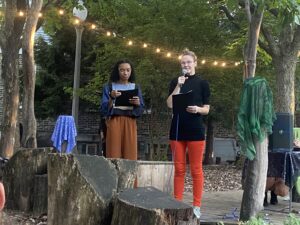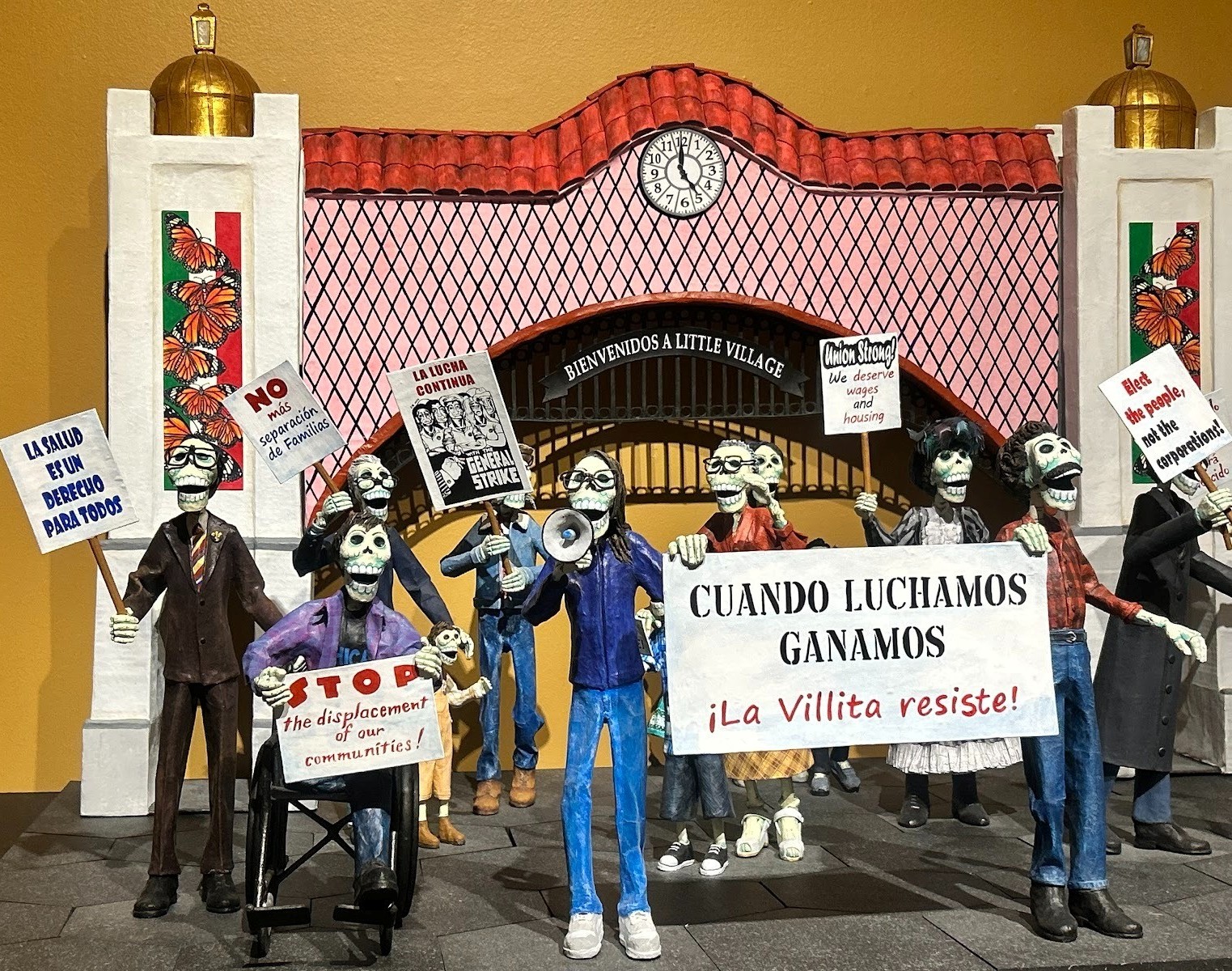Collaborating with a network of contractors and community-based partners in renovation and full-scale deconstruction projects, Bucktown’s Rebuilding Exchange has diverted an estimated 8,000 tons of building materials from landfills.
“We need to rethink our relationship with what we call the waste stream, because in fact it’s a value stream; it’s our natural resources that have been extracted over the years and reconfigured into different types of materials,” said Elise Zelechowski, founder and executive director of the Rebuilding Exchange. “Frankly we’re running out of natural resources and if we don’t start thinking about this waste stream as another value stream, we’re going to be in trouble. We don’t have the natural resources that we once did.”
Since it’s inception in 2009, the Rebuilding Exchange has aimed to create a market for reused materials from Chicago’s built environment. And now, thanks to a Cook County ordinance that went into effect last month, business may see a boost.

Aimed at diverting construction materials from Cook County’s last remaining useable landfill, the Demolition Debris Diversion Ordinance requires demolition contractors working in suburban and unincorporated Cook County to recycle 70 percent of their debris for all demolition projects. Residential properties must show 5 percent is being diverted for reuse. Only sheds and garages are excluded.
“A lot of the material when you demolish buildings has a lot of value; it can be not only be recycled but a lot of it can be reused without even being crushed and reprocessed,” said Deborah Stone, Cook County chief sustainability officer and director of the Cook County Department of Environmental Control. “You’ve got windows, doors, floorboards, structural lumber and all kinds of other components that people pay good money to buy, and a lot of times what’s being demolished is good quality and if we could connect it to the right customers it could be reused.”
The ordinance, sponsored by Cook County Commissioner Robert Steele (2nd), went into effect Nov. 21. Stone said she hopes this will help Cook County bypass the negative environmental impact of filling up landfills and emitting diesel fuel gasses while trucking garbage across our landscape.
Of approximately 1,600 demolition projects from Cook County’s last fiscal year, roughly 60 percent would have fallen within the ordinance restrictions, according to Bryant Williams, manager of engineering services for the Cook County Department of Environmental Control.
Zelechowski said now that contractors are required to reuse a percentage of materials from demolition projects, she an increase in materials for the Rebuilding Exchange’s retail warehouse.
“People are really starting to see the value in reuse,” said Zelechowski, who spearheaded the Rebuilding Exchange underneath the umbrella of the Delta Institute, a non-profit focusing on green initiatives for the Great Lakes Region.
The 24,000 square foot retail warehouse, located at 1740 W. Webster Ave., serves approximately 16,000 customers a year, making vintage and one-of-a-kind home features, ranging from old-growth lumber to doors and door knobs, available for purchase.
“When you’re deconstructing a home you can really find all different types of materials; there are going to be materials that are standard, such as windows, doors and structural lumber, but you’ll also find materials that are kind of wacky, like saunas or wine cellars.
Zelechowski said that deconstruction contractors often find old-growth lumber in some of Cook County’s older homes, regularly made from Douglas Fir trees from Midwest forests that are “long-since gone.”
Demolition debris is the largest single category of waste in Cook County. Nationwide, approximately 40 percent of landfill waste is comprised of building materials, including wood, drywall, metals, bricks and plastics, according to a 2003 study by the Environmental Protection Agency.
The ordinance faced some opposition from contractors while it was still under review in Cook County legislature. The new requirement to reuse and recycle materials during demolition projects may require contractors to slow down, which could be deemed less cost effective.
“This means demolition contractors that want to get in and get out, knock a house down in two days, put the materials in trucks and send it along to a landfill; well, it’s more work for them,” said Ken Ortiz, regional manager of the ReUse People of America, a nationwide non-profit serving as a facilitator between contractors and retail facilities such as the Rebuilding Exchange. Ortiz testified on behalf of the ordinance in front of the Cook County board of commissioners.
Kyle Fitzgerald, senior project manager for OBI Deconstruction, a contracting firm specializing in deconstruction, said traditional demolition would “crunch and compact” a building into a dumpster to be taken to a landfill.
“The key for contractors is to handle the materials properly so they can be salvaged,“ he said. Fitzgerald has worked as a contractor for 10 years in both demolition and deconstruction. “Yes, deconstruction takes more time and can be seen as more costly, but it depends on how you measure success… We get tax deductions and we save on landfill tipping fees, plus it’s worth it to save these materials that have a lot of value.”
Williams, manager of engineering services for the Cook County Department of Environmental Control, said the response from contractors has been mostly supportive of the ordinance.
“Most of the larger demolition firms recognize the value of recycling and or reusing materials, so there’s not been a lot of push back,” he said.
To help Chicagoans experiment with salvaged building materials, the Rebuilding Exchange offers a series of workshops, called “Make It, Take It.” For $75, the Rebuilding Exchange provides materials and instruction for building home amenities, such as a framed mirror or a bench.
“Part of our mission is to educate people about deconstruction and reuse,” said Zelechowski. “The skills required to use some of these materials and repurpose them are something that we need to encourage and teach if we want this to be a successful initiative.”
Founder Elise Zelechowski said she hopes the workshops encourage Chicagoans to become more engaged in the use of reclaimed materials.
“We in Cook County have only one landfill left that has just a few years of capacity left,” she said. “We need to think about finding reuse and recycling opportunities inside the county and we need to be challenging policy makers to create the right kinds of policies that support conservation of our natural resources and manage our waste responsibly.”
Related articles
 Chicago Region is Named A Leader In Sustainable Transportation(cityofchicago.org)
Chicago Region is Named A Leader In Sustainable Transportation(cityofchicago.org)
 Rebuilding Exchange Makes Furniture Out Of Trash(chicago.cbslocal.com)
Rebuilding Exchange Makes Furniture Out Of Trash(chicago.cbslocal.com)






















Be First to Comment